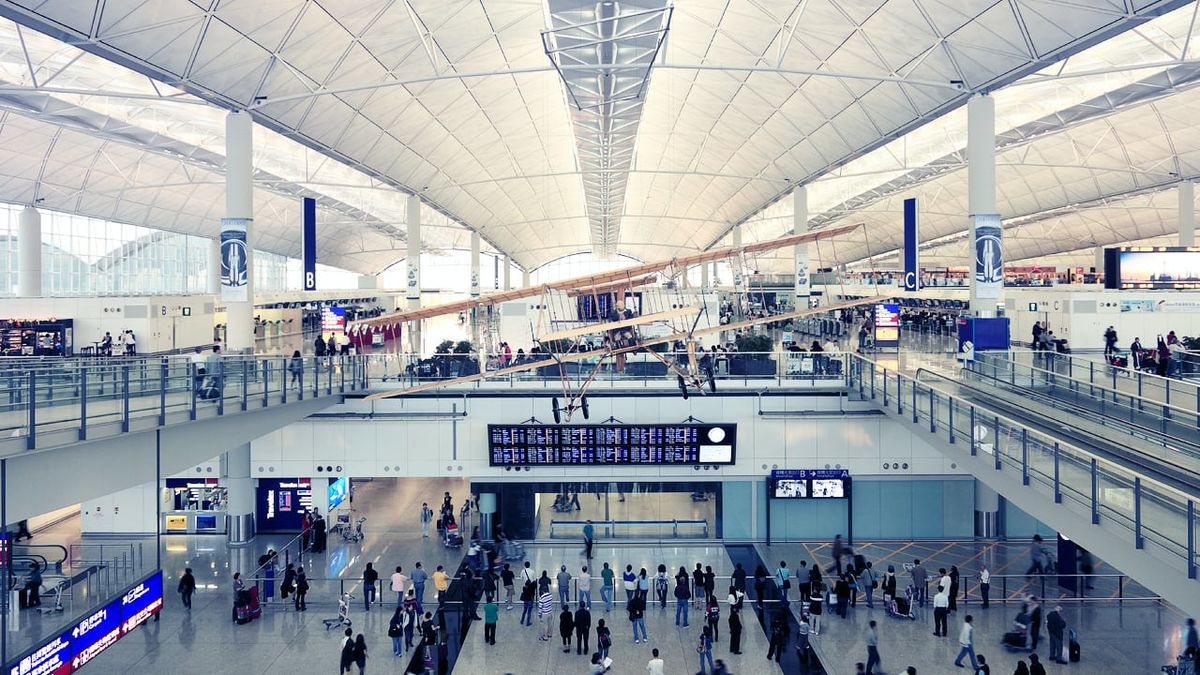Hong Kong eases travel restrictions, but businesses say not enough
Mandatory hotel quarantines remain a key sticking point, while airlines are anxious rules may be tightened again if cases return.

Hong Kong’s latest moves to ease travel into the financial hub are getting a lukewarm reception from the business community and airlines.
After months of criticism, the government is loosening a policy that suspends passenger flights for bringing in Covid-19 cases. It is also allowing all non-residents to enter the city for the first time in more than two years.
Hong Kong will on May 1 reduce the amount of time flight routes are banned to five days from seven for carriers found to have flown positive Covid cases.
The threshold will also be raised to five infected passengers or more, from three currently.
The so-called circuit breaker mechanism has been heavily criticized by business groups and spurred some airlines to pause flying to Hong Kong altogether, and the message from business groups is clear: do more.
“Things remain unpredictable, things remain unmanageable,” said Michiel Mak, vice chairman of the Dutch Chamber of Commerce in Hong Kong.
“For businesspeople, unpredictability is the worst thing. Even if you have complied with the rules, there’s no guarantee that you can travel at all.”
While the moves suggest Hong Kong is slowly creeping toward the end of the Covid tunnel, it still isn’t enough, industry groups say, particularly when other places such as regional rival Singapore have opened their borders and removed mandatory quarantine and testing for vaccinated travelers.
Those coming into Hong Kong are still subjected to a range of tests and hotel isolation.
“To have to have someone in quarantine for seven days on a business trip simply isn’t really financially viable,” said George Cautherley, vice chairman of the International Chamber of Commerce in Hong Kong.
“Frankly, this move, I think will have minimal effect on helping the business community really generate international business for Hong Kong.”
Much too little, far too late
David Graham, executive director of the British Chamber of Commerce in the city, said the changes coming next month are welcome developments, but the flight-suspension policy remains a major concern.
“The mechanism, even as amended, will continue to result in difficult logistical issues for both airlines and passengers,” he said. “Accordingly, we continue to request the government to move towards the removal of the mechanism in its entirety as soon as possible.”
Hong Kong Chief Executive Carrie Lam said Tuesday there are no plans to further relax border controls and flight-suspension measures.
The slow pace of change on travel and access to the city continues to undermine Hong Kong’s competitiveness, said Johannes Hack, president of the German Chamber of Commerce.
“We welcome all the recent steps taken by the government, fully and unreservedly,” he wrote in an email. “At the same time, we still lack a definite roadmap that states a return to open borders and quarantine-free travel as an explicit goal.”
Ongoing challenges for Cathay Pacific
While flag carrier Cathay Pacific has started to revise its schedule to put on more flights, airlines are wary after previous easing measures proved to be short-lived, according to people familiar with the industry who didn’t want to be identified criticizing the government.
Carriers are also concerned about the government’s response – and the possibility of policy reversals, including reimposing longer quarantines and banning more flights – if the city is hit by a sixth virus wave, the people said.
International business leaders aren’t the only ones calling for bigger moves. Peter Wong, chairman of the Hong Kong General Chamber of Commerce, said in an April bulletin that businesses want to see a much broader reopening.
“The fifth wave of infections has been devastating for the city, and the business community understands the need for measures to contain the spread of the virus,” Wong wrote.
“But we hope that the timetable can be adjusted to enable more rapid reopening if the current outbreak continues to ease, as has proven to be the case around the world.”
Mak, from the Dutch chamber, plans on traveling soon and, like many others, is worried about his ability to return. Given the demand, getting reservations in quarantine hotels and on planes can be difficult, especially if sudden flight bans force people to change plans or book at the last minute.
“I have no clue when and how I can come back,” he said. “The rules do not give me any guarantee that my flight will not be canceled.”
This article is published under license from Bloomberg Media: the original article can be viewed here